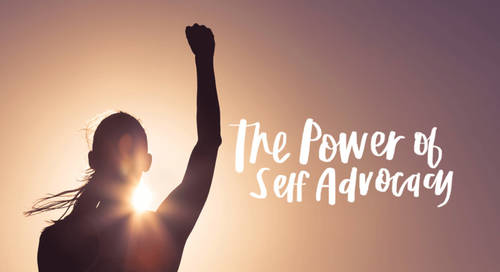

Most nonprofits have noble missions aiming to resolve any number of community issues such as homelessness, domestic violence, and unemployment, just to name a few. Their intent truly is to help those in need. Many of them successful in their recruitment of volunteers and employees that share their quest to help build a better community. But we also know of many nonprofits who’ve become complacent and ultimately cause some amount of harm to the people they once intended to humanely serve. In the many years I and the ELLA board of directors have worked with nonprofits, we’ve seen this firsthand. It is one of the reasons ELLA exists.
We have seen humble people in need of help made to feel like a nuisance by the very staff paidto assist them. ELLA decided it was time to provide workshops to teach them how to navigate social services. More importantly, teach them how to advocate for themselves when they feel they aren’t even being heard. All too often, people will take the initial denial of services as the last gospel word and not challenge the decision. They too easily walk away without questioning the representative’s decision. This is not to say there aren’t legitimate reasons to be ineligible for services. Many folks are turned away because they genuinely do not qualify under the organization’s eligibility requirements.
ELLA is specifically addressing the situation of incomplete assessment and unfair treatment of prospective social service applicants. Just one example of the many unjust situations we’ve witnessed was when a mother with her two young children travelled five hours by bus to a battered-women’s shelter. She were fleeing from her abusive husband, only to be turned away by the on-call shelter advocate and told to go to the local homeless camp simply because she arrived later than expected on a Friday night.
I happen to be at the shelter conducting a late interview with another domestic violence survivor for a university research study. When we walked out of the shelter, the mother was outside on her cell phone pleading with the on-call advocate to let her and her children into the building. This was occurring during the middle of a very cold snowy winter night and the mother had no vehicle, very little money, and only one suitcase and a garbage bag filled with bedding and pillows. She was not familiar with the city, and she had no idea where the homeless camp was. She was in a panic.
I was not employed as shelter staff and not allowed to let anyone into the secure building. However, I asked the mother how I could help her. She explained that she had already made prior arrangements with a different shelter advocate to have a room waiting for her when she arrived but now she was being told to go to the homeless camp with her children. I asked the mother to allow me to speak to the on-call advocate.
I reminded the advocate that the reason I was at the shelter was to conduct interviews of dv survivors about the services and treatment they received while at the shelter and this situation certainly would not look good for the organization if the mother was not helped in a more dignified manner. The advocate began to complain that she thought the mother was rude to her on the phone. I had to remind her that the mother had just fled a life-threatening situation with her children, leaving behind her home, family, friends, and everything she was familiar with to seek safety in a city she had never been to.
The advocate relented and came to the shelter to open the doors for the family. But the first thing she would tell the dv-surviving mother was, “I just thought you were so rude on the phone.” I was appalled that the advocate couldn’t see passed the interaction on the phone to observe that the mother and children had been experiencing the trauma of domestic violence. I had to respond to the advocate’s comment by explaining to her that her job was to help the mother and children, not castigate them, and that her behavior as an advocate was completely inappropriate and insensitive. The advocate finally started to do her job, but not before she was challenged to do so. The mother would call me a week later explaining that she and her children had been kicked out of the shelter because of claims by the same advocate that she was uncooperative and rude.
Unfortunately, this one example was not an isolated one. During my work in research, my interviews uncovered more stories of horror about dv survivor shelter experiences, than positive triumphant ones. These women told me in their own words they left one abusive situation with an intimate partner for a different kind of abuse by shelter staff. It was listening to these experiences from women, mostly women of color, that compelled our board of directors to develop workshops to teach self-advocacy. We noticed that most dv survivors had very little knowledge or experience advocating for themselves. We want to help change this.
Every woman, especially those in the most vulnerable situations, should have a tool kit to draw from when advocating for themselves and their family. Asking for help from a nonprofit organization should never be a traumatizing experience. However, if a woman encounters a situation where she feels organizational reps are harming more than they are helping, she needs to be better prepared for dealing with the apathy or conflict. Our Navigating Social Servicesworkshops aim to prepare women for appropriate self-advocacy. Please check out our events listings to see when our workshops are being provided.
Posted March 24, 2022
We use cookies to improve your experience on our website. By browsing this website, you agree to our Privacy Policy.
x